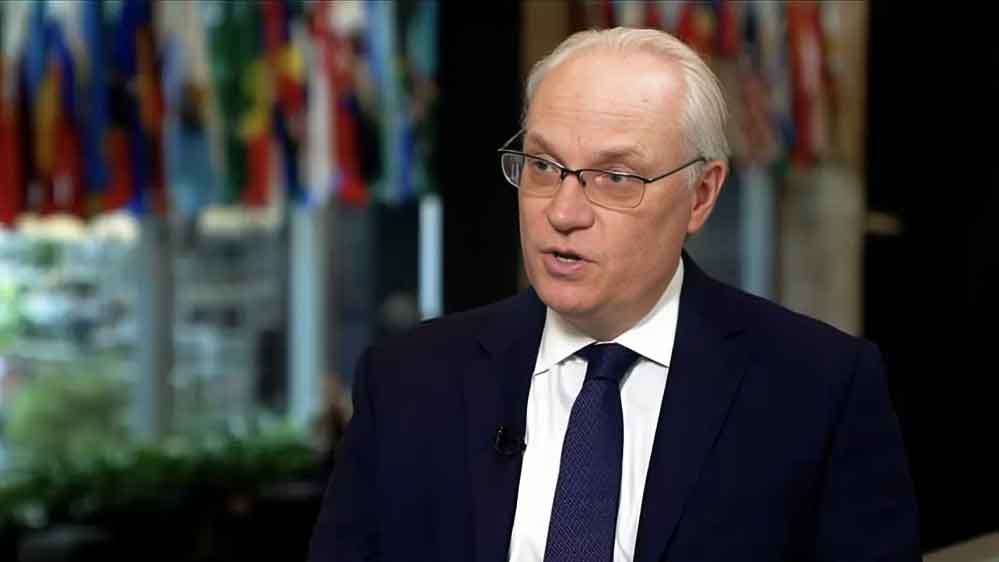


Barran Press
The US Special Envoy for Yemen, Tim Lenderking, stated on Tuesday, July 23, 2024, that a more stringent official designation for the Houthis is increasingly under consideration.
In an interview with ABC News, monitored by "Barran Press," Lenderking explained that the US, which designated the Houthis as a Specially Designated Global Terrorist group in January, has extended security guarantees over the Red Sea following recent attacks on vessels flying flags of various nations.
"There's more and more talk now about the designation under 'Foreign Terrorist Organization,' which would have some trade-offs, we feel, with our ability to support humanitarian and commercial activity in Yemen," Lenderking said.
He further elaborated that the State Department's designation of the Houthis as a Foreign Terrorist Organization, which would equate them with other terrorist groups, could make it difficult for international humanitarian organizations to operate within Yemen by requiring them to seek permission to interact with the Houthis, who control major ports including Hodeidah and the capital Sana'a.
Lenderking asserted, "The Houthis are the ones who are driving this and putting these options on the table, which we all thought, months ago, and when Joe Biden first took office, wasn't the right way to go. But when the Houthis act in a very clear way, and they act like a terrorist organization, it brings these questions to the forefront."
ABC News also quoted Freya Radi, Deputy Head of Delegation for the International Committee of the Red Cross (ICRC) in Yemen, as saying that the initial January designation of the Houthis as terrorists "had no tangible impact" on the organization's humanitarian work.
"But it's not clear whether this will be the case in the coming months... The ongoing escalation in the Red Sea has caused delays in the ICRC's import of aid to Yemen," Radi added.
She continued, "The ICRC is concerned about any further measures that could have negative impacts on the affected population and the delivery of neutral humanitarian assistance," noting that 90% of Yemen's food is imported and that "counter-terrorism measures can create additional administrative and logistical burdens."
"Humanitarian organizations cannot replace the commercial import system," Radi emphasized.
Separately, ABC News reported Lenderking as saying about Iran's new President, Masoud Pizhshikian, "We haven't seen any change from the new leadership in Iran thus far on any dimension, certainly not with regard to the conflict in Yemen."
He added, "I think there is a strong commitment on the part of the Iranians to continue supporting the Houthis."
Lenderking acknowledged that the truce has "held up largely" and that the UN-led roadmap in December 2023 brought the Houthis and the exiled government to the table to agree on a path forward.
However, he cautioned that there are "very serious questions about how committed [the Houthis] are to the peace process in Yemen."
He explained that the multinational defense arrangements, which include countries as far away as Australia and as close as Bahrain, could be strengthened.
Since November 2023, the Houthi group, internationally designated as a terrorist organization, has continued its attacks with missiles and drones against commercial cargo ships in the Red Sea, the Arabian Sea, and the Gulf of Aden.